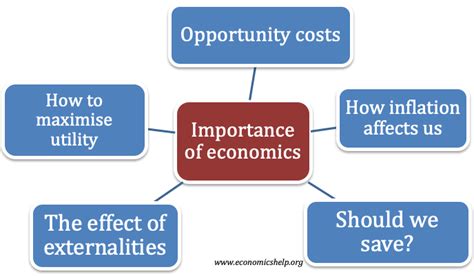Economic thinking is the application of economic principles to understand and make decisions in various aspects of life. It involves considering factors such as scarcity, opportunity cost, and rational decision-making to optimize outcomes. Understanding economic concepts can empower individuals and organizations to navigate financial challenges, optimize resource allocation, and contribute to overall well-being.

Personal Finance
Economic thinking enables individuals to make informed financial decisions that enhance their financial stability. It helps them:
- Manage budgets: Economic principles guide individuals in creating and adhering to budgets, ensuring responsible spending and avoiding financial distress.
- Plan for the future: Economic thinking encourages setting financial goals, investing for the future, and preparing for retirement, ensuring financial security over the long term.
- Avoid financial traps: Understanding concepts like predatory lending and debt traps empowers individuals to make informed choices and avoid financial pitfalls.
Business and Entrepreneurship
Economic thinking is crucial for businesses and entrepreneurs to make strategic decisions, allocate resources effectively, and maximize profitability. It assists them:
- Conduct market analysis: Economic principles provide frameworks for understanding market dynamics, identifying potential opportunities, and targeting specific customer segments.
- Manage costs: Economic thinking helps businesses minimize costs through efficient production, cost-saving measures, and strategic sourcing.
- Maximize revenue: Economic principles guide businesses in setting optimal pricing strategies, understanding consumer behavior, and developing effective marketing campaigns.
Public Policy
Economic thinking serves as a foundation for informed public policy decisions that aim to improve economic outcomes. It enables policymakers to:
- Promote economic growth: Economic analysis helps policymakers implement policies that encourage investment, innovation, and job creation.
- Reduce poverty and inequality: Economic principles guide the design of social programs and policies that address economic disparities and support vulnerable populations.
- Manage public finances: Economic thinking assists policymakers in balancing government budgets, allocating public funds effectively, and promoting fiscal responsibility.
Education and Research
Economic thinking fosters critical thinking, problem-solving, and analytical skills in students. It enhances:
- Understanding of economic systems: Economic thinking equips students with a solid understanding of how economies function, including markets, production, and financial systems.
- Decision-making skills: Economic principles teach students to weigh costs and benefits, consider trade-offs, and make informed decisions.
- Contribution to innovation: Economic thinking encourages students to explore new ideas, identify economic opportunities, and develop innovative solutions to real-world problems.
Social and Environmental Issues
Economic thinking can be applied to address complex social and environmental issues. It provides frameworks for:
- Evaluating government spending: Economic principles assist policymakers in prioritizing government expenditures, ensuring efficiency and effectiveness in addressing social and environmental challenges.
- Assessing environmental impact: Economic thinking quantifies the economic costs and benefits of environmental policies, enabling informed decisions about resource allocation and sustainability.
- Promoting social welfare: Economic principles guide the design of policies that support vulnerable populations, promote equity, and improve overall social well-being.
Benefits of Economic Thinking in Key Areas:
| Area | Benefit |
|---|---|
| Personal Finance | Improved financial literacy, reduced risk, financial security |
| Business and Entrepreneurship | Increased profitability, optimal resource allocation, strategic decision-making |
| Public Policy | Informed decision-making, economic growth, poverty reduction |
| Education and Research | Enhanced critical thinking, problem-solving, innovation |
| Social and Environmental Issues | Addressing complex challenges, promoting social welfare, quantifying environmental impact |
Tips and Tricks for Applying Economic Thinking:
- Identify the economic problem clearly: Define the issue or question you are trying to address.
- Gather relevant data: Collect information about market conditions, consumer preferences, and other relevant factors.
- Consider multiple perspectives: Weigh the different costs, benefits, and trade-offs involved in each decision.
- Use economic models: Employ mathematical models or simulations to predict outcomes and evaluate alternative scenarios.
- Communicate findings effectively: Present your analysis clearly and concisely to stakeholders.
Common Mistakes to Avoid:
- Oversimplifying economic problems: Avoid assuming that economic decisions are straightforward or only involve monetary considerations.
- Ignoring externalities: Consider the potential impact of your decisions on the environment, society, or other parties.
- Relying on anecdotes or limited data: Base your decisions on reliable and comprehensive data to avoid biased or incomplete analysis.
- Neglecting long-term consequences: Consider the potential long-term effects of your decisions and avoid short-sighted thinking.
- Failing to adapt to changing circumstances: Regularly monitor and reassess economic conditions and adjust your decisions accordingly.
FAQs:
- Who can benefit from economic thinking? Everyone can benefit from economic thinking, regardless of age, occupation, or income level.
- Is economic thinking difficult to understand? Economic concepts can be complex, but many resources are available to help individuals understand and apply them.
- How does economic thinking promote financial literacy? Economic thinking empowers individuals to make informed decisions about saving, investing, and managing their finances.
- Can economic thinking help me start a business? Economic thinking provides valuable frameworks for market analysis, cost management, and revenue maximization, which are essential for entrepreneurship.
- Why is economic thinking important for public policy? Economic thinking guides policymakers in making informed decisions about economic growth, poverty reduction, and public finances.
- Does economic thinking apply to social and environmental issues? Economic thinking can quantify the economic costs and benefits of environmental policies and social programs, enabling policymakers to make informed decisions.
- How can I learn more about economic thinking? There are numerous books, articles, online courses, and educational programs that offer insights into economic thinking.
- Is economic thinking only relevant to economists? Economic thinking is beneficial to everyone because it provides tools for understanding and addressing various economic challenges and opportunities.
